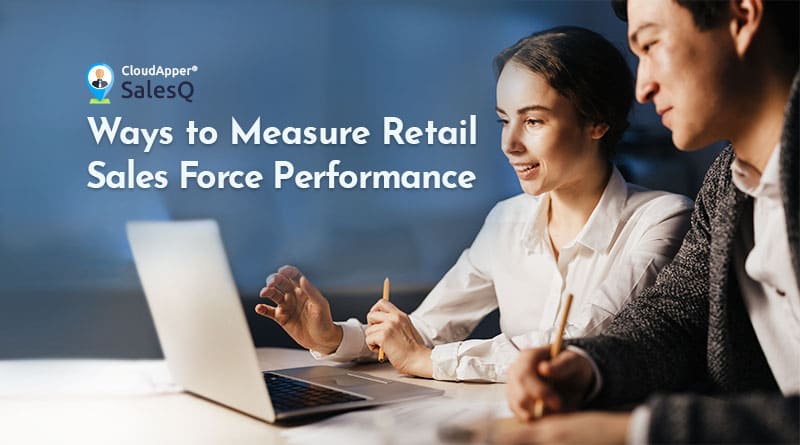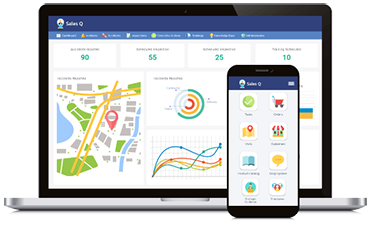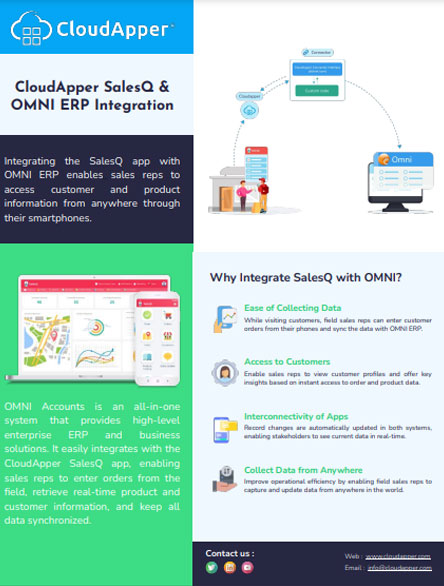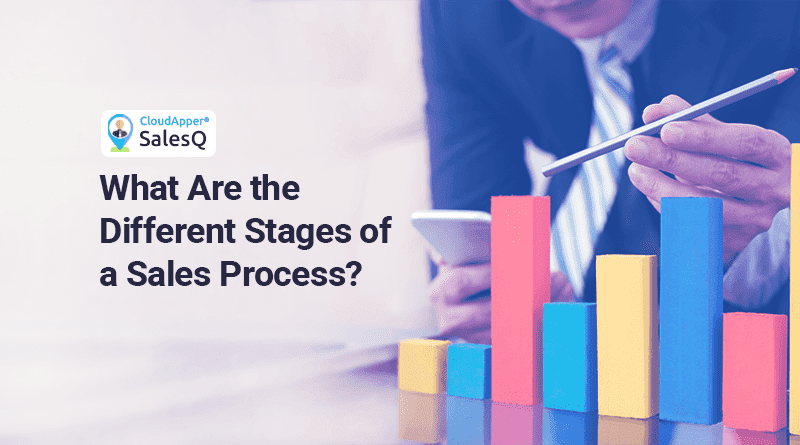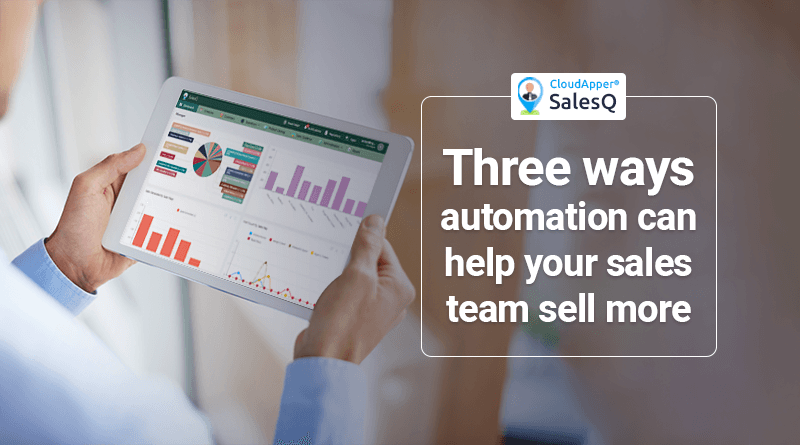Table of Contents
Retail sales force performance measurement is necessary to assess whether sales teams are performing their best and achieving high levels of profits. Retail salespeople are distributed across various territories, stores, and outlets, and deliver a wide range of products. It is essential to keep tabs on product performance and sales rep performance to make sure that the business remains profitable.
Sales metrics of retail sales reps can be calculated to understand their performance. Sales per store per period can also be compared to previous periods to track sales performance. Latent trends can also be identified using a field sales monitoring app like SalesQ that helps you track sales force performance. This is done through interactive dashboards that display correlations that can be utilized to augment sales force performance.
Why Measure Retail Sales Force Performance
The retail sales force operation is a vast process that consists of a number of different stores and areas that should be closely monitored to make sure all branches receive the same treatment. Managers must make sure that the reputation of the retail chain does not go down due to the poor performance of a few outlets. In this regard, sales team performance of all outlets should be carefully monitored to make sure their service is top notch.
Measuring Retail Sales Force Performance
Retail sales operations should be meticulously measured to make sure reps are performing at optimal capacity. Retail sales performance can be measured to find out how sales reps are doing in the following ways:
Calculate Sales Per Rep
Targets assigned to retail sales agents can be calculated individually for each sales agent. This can be done by dividing retail sales representatives into full-timers, part-timers, experienced, or new hires. The average sales per rep can be calculated by dividing total sales for the period by manpower to assess performance. SalesQ allows you to measure target achievement per rep and assess the sales force performance. This helps in making adjustments or increasing manpower to drive retail sales.
Identify Sales by Department or Category
Sales reports among various stores, territories or departments can be calculated to compare performance among various locations. Categories of items that sell more compared to others can also be determined to identify buyer preference. These metrics can be used to focus on profitable territories, or on items that will yield more profit down the line. SalesQ can help identify these metrics.
Measure Inventory Turnover
Items that move faster should be determined based on their pull from inventory. Items can be tracked per customer, as well as the volume that goes out of the inventory for better sales planning. Procuring and producing the wrong inventory can lead to increased warehousing costs and damage in case of perishables. This prevents inventory stagnation, and also pinpoints items which reps are having difficulty selling. Retail sales agents can then be trained to make sure they are able to increase deliveries of undersold product lines.
Assess Items Per Transaction
This is a measure that is used to track retail sales agent performance that shows how many, and what items, a rep has sold to individual customers. Sales forecasts can be made based on this information, and proper procurement operations can be conducted accordingly to make sure that there are no losses due to a lack of inventory. Items sold per customer can help in demographic segmentation and suggest similar products to customers who fit a certain demographic. SalesQ allows a view of items that have been bought by individual customers.
To Conclude
Sales force performance for retail should be meticulously tracked to make sure that retail sales rep performance of all product lines across all territories, stores, and outlets remain satisfactory. This ensures satisfied customers, positive word of mouth, and good relationships with suppliers due to adequate inventory management. A field sales monitoring app like SalesQ by CloudApper can help in tracking sales force performance. So, what are you waiting for? Contact us today!
What is CloudApper AI Platform?
CloudApper AI is an advanced platform that enables organizations to integrate AI into their existing enterprise systems effortlessly, without the need for technical expertise, costly development, or upgrading the underlying infrastructure. By transforming legacy systems into AI-capable solutions, CloudApper allows companies to harness the power of Generative AI quickly and efficiently. This approach has been successfully implemented with leading systems like UKG, Workday, Oracle, Paradox, Amazon AWS Bedrock and can be applied across various industries, helping businesses enhance productivity, automate processes, and gain deeper insights without the usual complexities. With CloudApper AI, you can start experiencing the transformative benefits of AI today. Learn More
